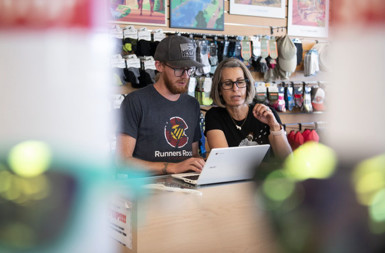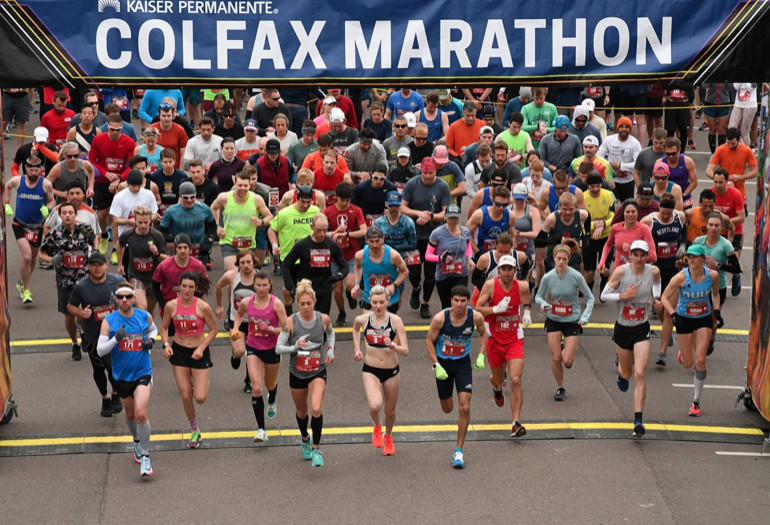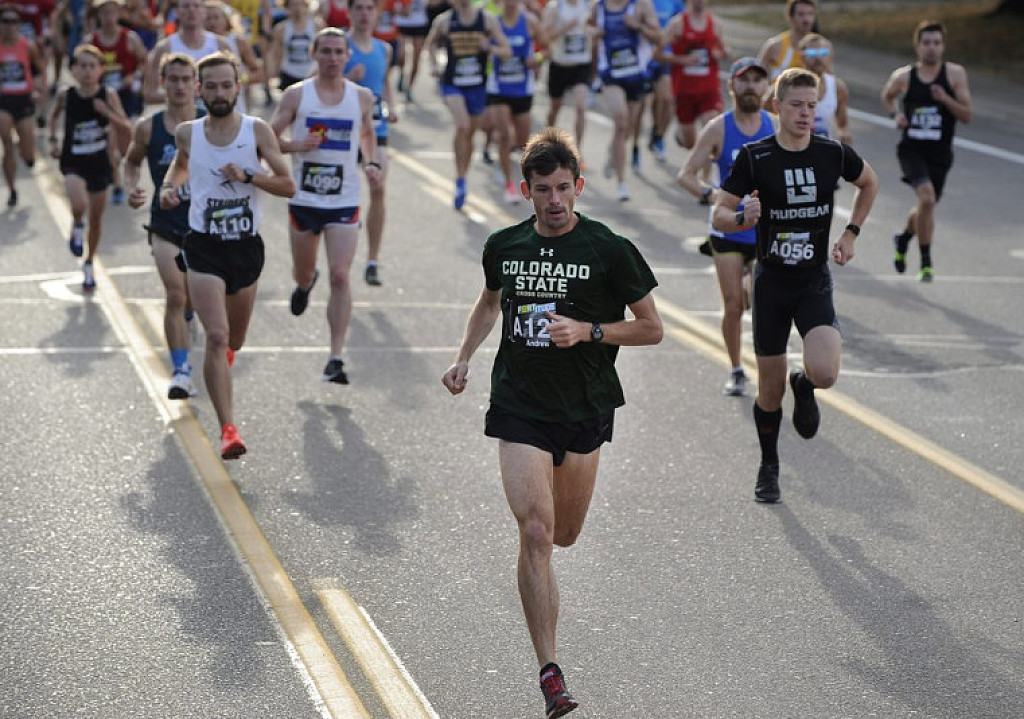Running News Daily
Running News Daily is edited by Bob Anderson. Send your news items to bob@mybestruns.com Advertising opportunities available. Train the Kenyan Way at KATA Kenya and Portugal owned and operated by Bob Anderson. Be sure to catch our movie A Long Run the movie KATA Running Camps and KATA Potato Farms - 31 now open in Kenya! https://kata.ke/
Index to Daily Posts · Sign Up For Updates · Run The World Feed
Running industry walloped by COVID-19, and it may take years to recover
Races in the busiest season of the year have been canceled or postponed while retail sales plummet.
With more than a third of this year’s competitive road racing schedule canceled or postponed by the coronavirus, and running stores enduring massive drops in sales because of restrictions on retail businesses, America’s running industry is bracing for months or years of fallout.


The effects of COVID-19 on the sport may not be all bad, many in the running community believe, citing a running boom that followed the Great Recession in 2008. The only thing a runner really needs to run is a pair of running shoes.
“People turn to this sport in particular in times of economic downturns and crises,” said Rich Harshbarger, chief executive of Running USA, an industry trade group. “We saw this in the late 2000s. People gave up their country club memberships and returned to simpler sports like running. You saw a downturn in golf, you saw a downturn in skiing — things that are more expensive. Runners turned to the sport, or returned to the sport, to relieve stress. And, to get and remain healthy.”
But the number of road race registrations — more than 17.6 million in 2019, according to Running USA — is bound to decline significantly this year and maybe beyond. Meanwhile, many running stores are prohibited from having customers in their stores, as is the case with other “non-essential” retail stores, and that has hit them hard.
Sales have declined 80% at Runner’s Roost in Lakewood and 70% at In Motion Running in Boulder, according to owners of those stores. The Lakewood store cannot have customers inside but is finding other ways to fill shoe orders, and owner Sonya Estes senses an influx of newcomers to the sport because of COVID-19 — just as Running USA predicted.
“We can look at all the bad, or we can look at the good, and the good in this is that running has been touted as one of those things that is great for your mental and physical health,” Estes said. “To have the governor stand up there and say, ‘Get out and go for a hike,’ or, ‘Go for a run, just don’t do it in a large group,’ I think long-term it’s going to be amazing for the business. When you see gyms and rec centers close down, I’ve never seen so many people up on Green Mountain or at Bear Creek. People that wanted to work out are now embracing running. If they find that they really like this, I think long-term, for running, it’s actually a good thing.”
In Motion Running has remained open, in part because owner Mark Plaatjes practices physical therapy at In Motion Rehabilitation, a clinic attached to the rear of the store, and that stayed open. Only two retail customers are allowed in the store at a time, though, and store personnel disinfects after customers leave.
Like Estes, Plaatjes has seen newcomers. “It’s definitely nice to see new people coming in that we haven’t seen before,” Plaatjes said. “Once our regular customers come back, I’m sure that will translate into an increase in sales and participation in running.”
Both stores are offering non-contact curbside service and home deliveries. They and other running stores are offering virtual gait analysis to assist customers in choosing the right shoes, a process that normally is conducted on treadmills inside the stores. Customers submit videos of them running so trained staff can analyze them and recommend shoes constructed for their anatomical particulars.
The carnage in road racing could be significant, though. Running as a solitary fitness or mental healthy pursuit is one thing, but for many runners, the social aspect of the sport comes out in racing. Races are community celebrations of the running lifestyle. That part of the sport has been dealt a devastating blow, and officials fear it could take years to recover.
Spring is the busiest season of the year for racing, with 35% of America’s races scheduled in March, April and May. Most of those have been canceled or postponed until fall. Some of those events, and the companies that support them by providing timing and other event services, may never recover. The vast majority of the road race industry is comprised of small businesses with eight employees or less, according to Running USA’s Harshbarger.
“It absolutely can be a fatal blow, and unfortunately it will be for a lot of the industry,” Harshbarger said. “We were already seeing some event management companies have to close their doors. Their sole business is to go around their region or their city and help produce events. When those events cease to have revenue, their livelihood evaporates.”
The Bolder Boulder was able to reach quick agreement with the City of Boulder and the University of Colorado (where the race finishes) to postpone from Memorial Day to Labor Day. But the Cherry Creek Sneak, which was scheduled for April 26, is still waiting for the City of Denver to approve a new date it sought to reserve in September. So is the Colfax Marathon, which includes a half marathon, a 10-miler and marathon relay that were scheduled for May 17.
Colfax race director Andrea Dowdy said 14-15,000 medals for her races were scheduled to arrive last week, and there’s no guarantee those races will be held this year.
“We feel very comfortable that operationally we’re in a sound place, so that when the city says to us, ‘You can have an event this fall,’ or ‘We need all events to wait until the spring,’ we can work either way,” Dowdy said.
Harshbarger fears that races will “cannibalize” each other if they are rescheduled in the fall, which is already the second-busiest season with 31% of the nation’s races scheduled in September through November. The Bolder Boulder has already folded its Fortitude 10K, normally scheduled for Labor Day in Fort Collins, into the Boulder race. In effect, both races will be run concurrently in Boulder.
If the Cherry Creek Sneak and the Colfax event are added, September would become an extremely crowded race calendar in Denver. And that would come on top of non-running events already scheduled in the city or looking to reschedule then. Dowdy and Cherry Creek Sneak race director Pat Downing can only wait on word from the city’s Office of Special Events.
“They need to form a new process on how they’re going to allocate a very limited number of spaces into a space now that is overcrowded,” Downing said.
Another question that arises: What will races look like when they do resume?
“Who knows, resurgence or not, what social distancing guidelines are going to be?” Harshbarger said. “Let alone the emotional fog of, ‘Do I really want to get in a corral with 50 people? Do I want to get in a race with 10,000 people?’ We don’t know. When we come through this — and I don’t know when that is, a year? Maybe two years? — I do think the sport will be strong. I do think there will be demand to do this. I think there will be new guidelines and corral set-ups. But history shows us that runners are resilient.”
Login to leave a comment




